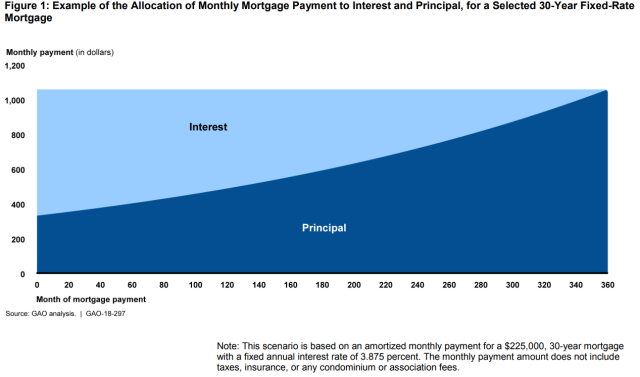How Equity Release Mortgages Can Access Property Value
How Equity Release Mortgages Can Access Property Value
Blog Article
Checking Out the Different Sorts Of Equity Release Mortgages Available Today
Equity Release home loans existing various options for house owners aged 55 and over. equity release mortgages. These monetary products deal with different demands and choices, enabling people to accessibility funds from their building. From lifetime home mortgages to common admiration home mortgages, each kind provides distinctive benefits. Recognizing these alternatives is essential for making informed decisions. What elements should one take into consideration when picking the most suitable equity Release plan? The details that comply with might clarify this essential topic
Recognizing Equity Release Mortgages
Equity Release home loans offer property owners, usually those aged 55 and over, with a way to access the worth bound in their building without needing to sell it. This economic option permits people to transform a portion of their home equity into money, which can be used for numerous objectives, such as home enhancements, paying off financial debts, or financing retirement.Equity Release can take various kinds, but it essentially entails loaning against the worth of the home while maintaining possession. Homeowners can choose to get a round figure or a series of smaller repayments, depending upon their economic requirements and preferences.Additionally, the quantity offered for Release is influenced by the home's value, the home owner's age, and specific lender standards. Generally, understanding equity Release mortgages is crucial for property owners to make informed decisions concerning using their home's equity while considering the long-lasting implications.
Life time Mortgages
Lifetime home mortgages stand for one of one of the most prominent types of equity Release. This financial item permits house owners, normally aged 55 or older, to borrow against the value of their residential property while keeping possession. The lending, which is secured against the home, accumulates rate of interest in time yet does not call for month-to-month repayments. Rather, the loan and accumulated passion are settled when the property owner passes away or relocates right into long-lasting care.Lifetime home loans offer versatility, as borrowers can pick to get a swelling sum or opt for a drawdown facility, accessing funds as needed. Notably, many strategies come with a no-negative-equity warranty, guaranteeing that customers will never ever owe greater than the value of their home. This attribute gives satisfaction, allowing people to appreciate their retired life without the concern of diminishing their estate. Overall, life time mortgages function as a feasible choice for those seeking financial assistance in later life.
Home Reversion Program

Drawdown Lifetime Mortgages
While many property owners seek means to access their wide range, drawdown lifetime home loans offer a versatile option that enables individuals to Release funds slowly. This kind of equity Release home mortgage enables homeowners to borrow against the worth of their residential property while retaining ownership. Unlike standard lifetime mortgages, drawdown strategies allow borrowers to access a portion of their equity upfront and take out additional funds as needed, as much as a fixed limit.This attribute can be particularly helpful for those that wish to handle their funds meticulously, as it minimizes rate of interest buildup by only billing passion on the quantities attracted. Furthermore, drawdown lifetime home mortgages often feature a "no negative equity warranty," making sure that consumers will certainly never owe greater than their home's value. This choice matches retirees that desire financial security and flexibility, enabling them to meet unexpected costs or maintain their way of life without having to sell their building.
Enhanced Lifetime Mortgages
Improved Lifetime Mortgages supply unique advantages for qualified homeowners looking for to Release equity from their homes. Understanding the eligibility requirements is essential, as it identifies who can take advantage of these specialized financings. It is also vital to examine the prospective disadvantages connected with boosted options, ensuring an all-round point of view on their usage.
Qualification Criteria Described
Comprehending the qualification criteria for Improved Lifetime Mortgages is crucial for prospective applicants seeking to access the equity in their homes. Normally, candidates should be aged 55 or older, as this age demand is basic in the equity Release market. House owners ought to possess a residential or commercial property valued at a minimal threshold, which can differ by loan provider. Notably, the residential property should be their key residence and in good condition. Lenders usually examine the homeowner's wellness status, as specific health problems may improve qualification and advantages. In addition, candidates need to not have existing considerable financial obligations protected against the residential property. Meeting these requirements allows people to explore Enhanced Lifetime Mortgages as a sensible alternative for accessing funds bound in their homes.
Benefits of Improved Home Mortgages
After clearing up the eligibility criteria, it becomes obvious that Enhanced Life time Mortgages supply several significant benefits for property owners looking to take advantage of their residential or commercial property equity. Mostly, they offer accessibility to a larger loan quantity contrasted to conventional lifetime home mortgages, profiting those with health conditions or age-related elements that raise their life expectations threat. This enhanced loaning capacity allows property owners to fulfill various economic demands, such as home enhancements or retired life expenditures. In addition, these home mortgages typically feature adaptable payment choices, allowing borrowers to manage their finances better. The no-negative-equity guarantee better assures that homeowners will never ever owe greater than their residential or commercial property's value, offering tranquility of mind. In General, Improved Lifetime Home loans offer a compelling option for qualified home owners seeking economic remedies.
Potential Drawbacks Thought About
While Enhanced Lifetime Mortgages provide many advantages, potential disadvantages require cautious factor to consider. One substantial issue is the effect on inheritance; the equity launched lowers the value of the estate entrusted to recipients. Furthermore, these home loans can accumulate substantial interest gradually, leading to a significant financial debt that may go beyond the initial car loan quantity. There may also be constraints on building adjustments or rental, limiting homeowners' adaptability. Enhanced items frequently call for particular wellness conditions, suggesting not all home owners will certainly qualify. Lastly, taking care of the fees and charges associated with these home mortgages can be complicated, potentially leading to unexpected expenses. Consequently, people should completely analyze their circumstance and speak with economic advisors browse around these guys prior to continuing.
Shared Gratitude Home Mortgages
Shared Recognition Home loans stand for a distinct financial arrangement that allows property owners to accessibility equity while sharing future building value enhances with the lending institution. This method provides prospective benefits such as decreased month-to-month repayments, but it likewise features drawbacks that need to be meticulously thought about. Understanding the qualification requirements is necessary for those thinking about this option.
Concept Introduction
Equity Release home mortgages, specifically in the form of common recognition home loans, provide home owners a distinct economic remedy that permits them to access funds by leveraging the worth of their home. In this arrangement, a lender provides a car loan to the house owner, which is commonly paid off with a share of the residential property's future appreciation in worth. This indicates that when the property owner sells the property or dies, the lender obtains a portion of the increased worth, rather than simply the first lending amount. Shared recognition home mortgages can be appealing for those looking to supplement their earnings or financing considerable costs while preserving ownership of their home. The financial implications of shared admiration must be meticulously considered by prospective debtors.
Drawbacks and benefits
Although shared admiration home loans can offer substantial financial benefits, they also come with notable drawbacks that prospective consumers should think about. These home loans enable property owners to gain access to equity in their residential properties while sharing a section of any kind of future admiration with the loan provider. This setup can be valuable during times of rising residential property worths, offering substantial funds without month-to-month repayments. The primary downside is the possible loss of equity; property owners may finish up with substantially minimized inheritance for successors. In addition, the complexity of the terms can bring about misconceptions concerning settlement commitments and the portion of recognition owed. It is essential for consumers to consider these factors meticulously before committing to a common recognition home mortgage.

Eligibility Requirements
What criteria must house owners fulfill to get a common appreciation home loan? Largely, prospects must be at the very least 55 years old, ensuring they are within the target market for equity Release items. Furthermore, the building must be their primary house and normally valued above a defined minimum threshold, commonly around ? 100,000. Lenders likewise examine the property owner's financial situations, consisting of income and arrearages, to ascertain they can manage the mortgage sensibly. Notably, the building has to remain in great condition and without considerable lawful encumbrances. Homeowners must likewise have a clear understanding of the terms, including exactly how appreciation will be shown to the lender upon sale or transfer of the residential or commercial property, as this affects total returns.
Picking the Right Equity Release Choice

Regularly Asked Inquiries
What Age Do I Required to Be for Equity Release?
The age requirement for equity Release usually begins at 55 for a lot of plans. Nonetheless, some suppliers might provide alternatives for those aged 60 and above, mirroring varying terms based upon specific scenarios and lender policies.
Will Equity Release Affect My Inheritance?
Equity Release can affect inheritance, as the quantity borrowed plus interest minimizes the estate's value. Successors may obtain much less than expected, relying on the residential or commercial property's recognition and the overall financial obligation at the time of passing.
Can I Move Residence With Equity Release?
The question of moving residence with equity Release occurs regularly. Normally, individuals can transfer their equity Release plan to a brand-new residential or commercial property, however specific conditions may use, calling for examination with the loan provider for support.
Are There Costs Connected With Equity Release Mortgages?
Costs connected with equity Release mortgages can include setup costs, evaluation fees, and legal costs. In addition, there may be very early repayment charges, which can influence the total cost and financial effects for the customer.
Just How Does Equity Release Influence My Tax Scenario?
Equity Release can influence one's tax situation by potentially boosting taxable earnings, as launched funds are thought about capital. It usually does not incur immediate tax obligation responsibilities, making it important to get in touch with an economic advisor for personalized assistance.
Verdict
In summary, the selection of equity Release home loans readily available today offers property owners aged 55 and over multiple paths to access their building's worth - equity release mortgages. Whether choosing for a lifetime home mortgage, home reversion plan, or various other choices, each choice presents distinct advantages customized to individual financial needs. Careful factor to consider and appointment with a financial consultant are Read Full Article important to assure the selected equity Release solution aligns with individual goals and monetary scenarios, ultimately helping with notified decision-making for a secure financial future. Equity Release home mortgages present different options for homeowners aged 55 and over. Equity Release home loans provide home owners, normally those aged 55 and over, with a means to access the worth tied up in their property without requiring to offer it. Boosted Lifetime Home loans supply distinctive advantages for eligible homeowners looking for to Release equity from their residential properties. Equity Release home loans, specifically in the form of shared gratitude mortgages, offer house owners a special his explanation monetary remedy that allows them to access funds by leveraging the worth of their residential property. In recap, the variety of equity Release home loans offered today supplies house owners aged 55 and over multiple pathways to access their residential property's value
Report this page